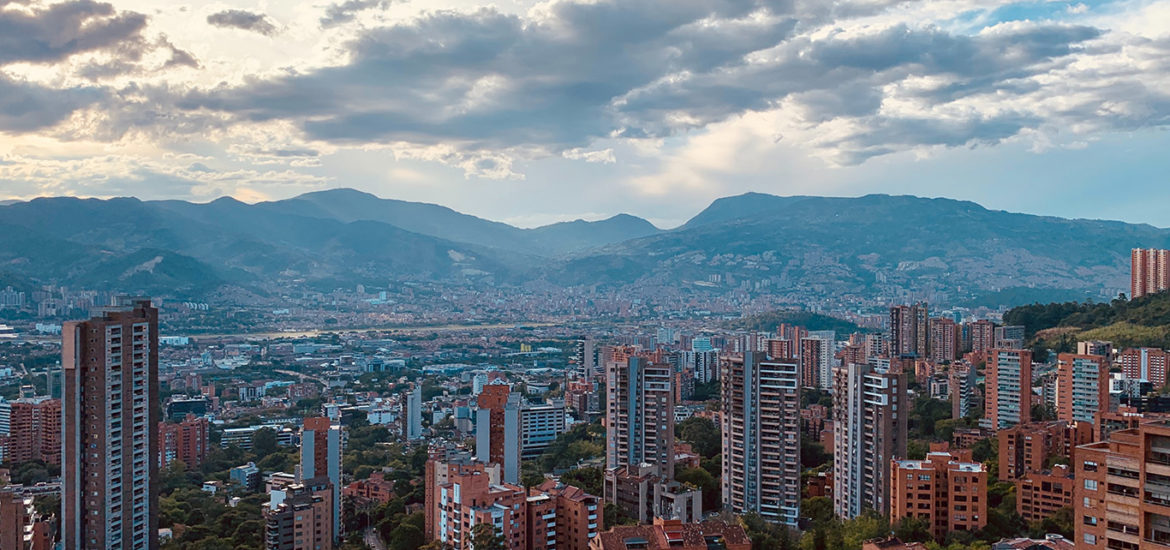The following are a series of initiatives, including tax measures, that the Colombian government has implemented to mitigate the financial and economic effects of the COVID-19 virus on business and individual taxpayers in Colombia. In Colombia, the state of social, economic and ecological emergency was declared with the issuance of Decree 417 of 2020 issued on 17 March 2020. It adopted measures related to public health and economic aspects. This decree was valid for a term of 30 calendar days. Decree 457 of 2020 issued on 23 March 2020, providing instructions for compliance with mandatory 19-day lock down throughout Colombia, which began on 25 March until 13 April 2020. Subsequently, by Decree 531 of 2020 issued on 8 April 2020 lock down was extended until 27 April 20207 and new measures were issued to ensure the lives and health of Colombians. The lock down was extended until 11 May 2020 and new measures are taking in to account depending of the evolution of COVID-19.
Tax measures Among the most relevant tax measures, the Government has changed the deadlines for submitting annual tax information extended in response to COVID-19. New extensions for corporate income tax compliance, filing overseas assets return. These deadlines began in April, however, the deadlines for the submission were extended to June 2020. The Superintendence of Companies modified twice the terms for the presentation of financial information as of December 31, 2019, and that all companies in Colombia must send through the web site of the entity. These deadlines have been moved to start on April 29th, until May 28th 2020. Measures have also been taken to reduce import tariffs on some medicines, inputs, and health sector devices, which are related to pandemic care for a period of 6 months. To promote and facilitate the cash flow of Colombians in general, the National Government, through Decree 535 of 2020 issued on April 10, established an abbreviated procedure for the automatic return of balances in favor of income tax and sales tax – VAT. Social security measures Through Legislative Decree 558 of 2020 issued 15 April, the National Government announced the measures to temporarily reduce the contribution to the General Pension System during the months of April and May, and the retires protection under the modality of programmed retirement, within the framework of the economic and social emergency. Since April 7, 2020, the National Government has been making a payment called “solidarity income”, which seeks to support all informal people who are not receiving any kind of subsidy from the state. It has been estimated that a total of three million Colombians will benefit from this economic aid offered by the National Government. Employee and employer supportive measures Circular 0021 was issued by the Ministry of Labour, in which employment protection measures were taken on the occasion of the containment phase of COVID-19 and the declaration of a health emergency. Legal mechanisms were also established to protect the right to work, through working at home, teleworking, flexible working hours, annual, early and collective vacations, paid leave, and non-service wages. It is important to mention that the Ministry did not recommend either contract suspensions, unpaid leave or collective dismissals. Similarly, the Ministry of Labour issued Circular 0022, in which it was reported that rigorous labour inspection would be carried out on all decisions taken by employers during the health emergency, in order to avoid mass redundancies in companies. Business support Due to the health emergency, the Government took measures to facilitate the development of meetings in virtual sessions, such as the Meetings of Partners, General Assemblies of Shareholders or Boards of Directors. Likewise, the deadlines for the procedures that make up the Single Business and Social Registry were extended. The Government has also made a number of announcements about financial assistance for traders in small and medium-sized enterprises, so that they can pay the salaries of their workers, among other expenses related to their operation, but when they go to the banks the situation is difficult, because soft loans are not easily granted. Standards issued by the National Government under the “State of Emergency”, but on a temporary or transitory basis: Decree Number Date Regulatory Issue 410 16 March Customs tariff for the import of products needed to deal with the health emergency 419 18 March Sales tax compensation – VAT, in favour of the most vulnerable population 436 19 March Customs measures for permanent customs users and highly exporting users 438 19 March VAT exemption on the import of inputs and elements related to the care of the pandemic 458 22 March Beneficiaries of the sales tax compensation – VAT 461 22 March Authorisation of governors and mayors to reduce land tax rates. 462 22 March It prohibits the export and re-export of products necessary to deal with the health emergency 463 22 March Reduction of tariffs for the import of medicines and medical devices 471 25 March Protective measures in the agricultural sector 491 28 March Notification of administrative acts, extension and suspension of terms 493 29 March Interest rate coverage benefit for mortgage and local debtors 518 4 April Regulation of the Solidarity Income Program 520 6 April New dates for filing and payment of income tax and tax on assets overseas 530 8 April Exclusion of the Lien to the Financial Movements by the Non-Profit Entities 535 10 April Abbreviated procedure for repayment and/or compensation of credit balances of VAT.Click here to learn more.
